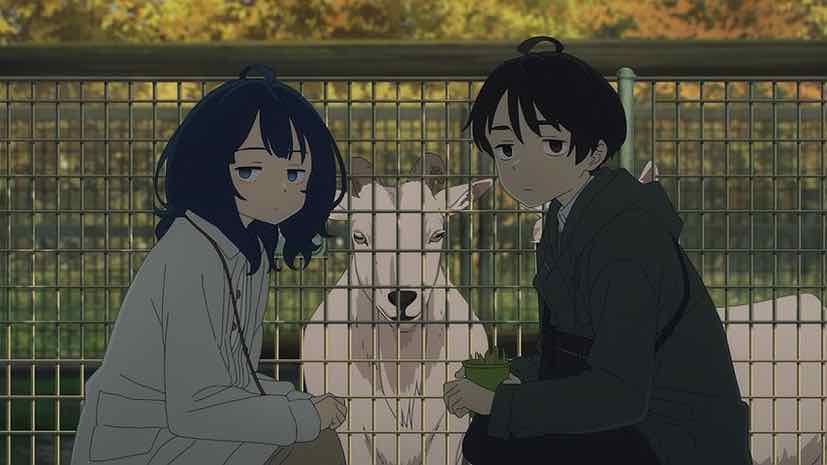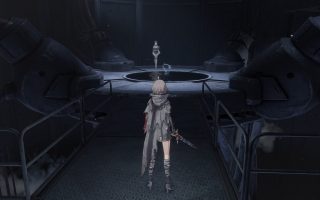An interesting bit of Makeine news dropped this week with the announcement that the finale would be an “original”. One penned by novelist Amamori Takibi that is, but directly for the screen. As such Komari’s arc officially ends here (it never made sense for it to be two episodes longer than Lemon or Anna’s). That’s also why this episode has a distinct finale feel to it, though all the arc concluders did to an extent. This is all relative of course – a second season is an absolute lock (with apologies to Nozaki-kun) with the only question being the timing.
The one continuity through all the heroines’ arcs was Nuk-kun as a central figure, of course. And therein, really, lies the most interesting open question for me with Make Heroine ga Oosugiru. It’s already established beyond a doubt that it’s exceptional for what it is – a light-novel romcon. Miles above the norm. What will determine whether it’s more than that – great, or just great for what it is – is how it handles Nukumizu’s character. Generally in this sort of series it’s one of two things with the male protagonist – so bland that you don’t care that they get no development. Or interesting enough that you’re frustrated that they get no development. The second is obviously less worse, but you can see the constant.
It doesn’t have to come this season – we have only one ep left, and there will surely be sequels. But it does have to come sooner or later or its absence severely limits this series’ upside for me. I have an image in my head of Nuk-kun roaming the streets of Toyohashi at dusk, searching for depressed girls to lean on railings next to until they feel better. That’s his identity in the series – the role in plays in these girls’ personal crises. There’s lots of possibility for exploration here – Nuk-kun literally sees himself as a side character. Does Amamori-sensei get the irony, or is that just how it’s going to play out?
As Chika’s arc has shown us, personal development is the key here and it doesn’t have to be tied to romance. Her failed one (mostly a case of puppy love in truth) was a factor in that development, but relatively minor compared to the first two heroines. Not for the first time I’ve been impressed by the perceptiveness in the writing here, as it’s addressed an issue at virtually the same moment it crystalizes in my mind (I love it when that happens). There’s a key difference between Kazuhiko and Komari-san, and it runs deeper than simply her social anxiety being stronger than his.
As an introvert myself, I’ve become quite adept at spotting the subtleties on the continuum. We’re like snowflakes, no two alike. Nuk-kun uses the very word for himself at the very moment I applied it to him – he’s a loner. He’s not afraid of social situations or connections so much as w(e)ary of them – he’s comfortable in his own company. Chika, by contrast, is genuinely shy. Interacting with others (much less groups or public speaking) terrifies her. But she actually longs to be be comfortable around others, and that’s a key difference. Nuk-kun doesn’t crave that because he’s a happy boy as he is – he’s fine on his own, and he can function socially when he needs to. Chika isn’t and can’t, and that makes high school life (and life in general) harder for her than it is for him.
This distinction comes into crystal focus with the matter of presenting the club activity report (and for a change the Bunkabu really has something to report) to the student council at the club presidents meeting. Chika is a stammering mess even practicing just with Kazuhiko because she’s still imagining actually doing it. Yet it’s terribly, brutally import to her to get through it – to justify the trust her sempai placed in her, and because she’s worried that if she fails her support system will desert her (they won’t of course, but she doesn’t know that).
To be blunt Nukumizu muffs this situation pretty badly. This is because he doesn’t have the above realization about how he differs from Komari until too late – which is forgivable, given that he’s a 16 year-old male whose social education is mostly light novels. He keeps pushing Chika to let him take over, thinking he’s being kind to her. But in fact he’s validating every fear she has, both about herself and generally. Anna kind of falls into her usual Greek chorus role here, eating everything in sight and gently reminding Nuk-kun when he’s screwing up. Not even a trip to the zoo to preach to the animals does the trick for Chika, and the meeting predictably turns into a debacle. But not fully until Kazuhiko intervenes and makes things worse.
I’m not sure how to take the ending here. Nuk-kun realizing his error and apologizing, no issues there. But his doing the speech and taking over as the club president? That’s a little dodgier to me. True, he’s probably better-suited to that job than Chika is. But what’s the message this sends? In a sense she’s letting this situation beat her rather than facing her fears and trying to overcome them. I guess it comes down to what you consider most important in this resolution – Chika realizing she has friends who’ll be loyal to her, or her fully committing to try and surpass her restrictor plate.
Trust me on this – the world (and nowhere more than high school) is designed by extroverts for the benefit of extroverts. No one is going to change that for Komari-san – she has to find a way to function in that world, and she won’t always have Nuk-kun to take over for her when she’s out of her depth. There’s another moment of real insight in the writing here, as Nuk-kun realizes life is a series of temporary connections we make in order to get through the various stages of our journey. The lesson Chika learns from this chapter in her life may not be one that will help her when she gets to the next one.
The post Make Heroine ga Oosugiru! (Too Many Losing Heroines!) – 11 appeared first on Lost in Anime.



